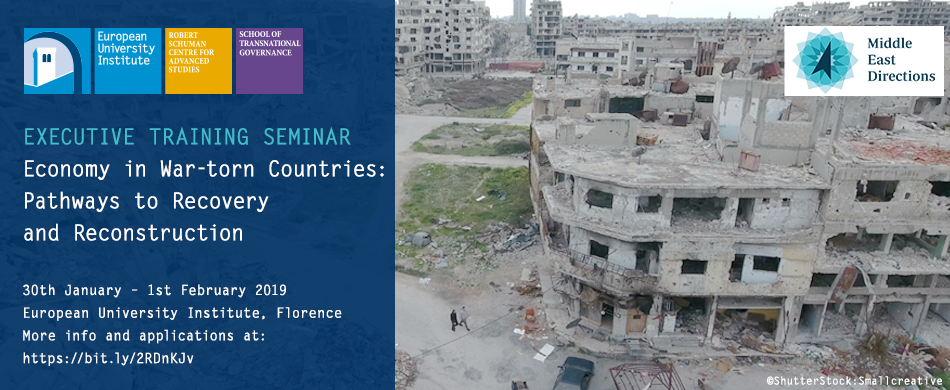Via della Badia dei Roccettini
9, 50014 Fiesole FI
Italy

This executive training focuses on the economic dimensions of civil wars. It explores how economic life changes amid widespread violence and state breakdown. It also addresses how wartime political economic arrangements create durable and remarkably resilient socio-economic mechanisms and networks. These arrangements help in adapting to high risks, regulating access to resources, markets and information, and are likely to endure and influence pathways out of conflict, as well as post-conflict recovery.
It is essential for policy-makers and practitioners involved in conflict resolution and reconstruction to understand civil war economy. Such an understanding adds an important dimension beyond the traditional focus on security that characterises the bulk of analyses and studies of civil wars. The ETS will address key questions such as: Once dynamics governing war economy have been described and analysed, how are they expected to influence, if not shape altogether, pathways to recovery and reconstruction? What can international mediators, aid agencies and development banks do to achieve that end? And how much does this influence vary among different national contexts?
The training examines cases from the MENA, i.e. Iraq, Syria and Libya, but also draws on experience from historical cases such as Angola, Sri Lanka and Lebanon. It borrows from political economy, political science, economic sociology and international relations, complemented by empirical evidence from the field.
The executive training draws on practitioners’ experience and on the latest academic analysis and field-based research in four strategic areas:
- Pathways from war economy
- The business of violence and protection in war contexts
- Lessons from past cases
- The role of the private sector in recovery and reconstruction
The ETS employs various teaching techniques and activities that combine knowledge with skills acquisition.
It is co-organised by the Middle East Directions Programme and the School of Transnational Governance (STG).
Check out the Draft Programme.



